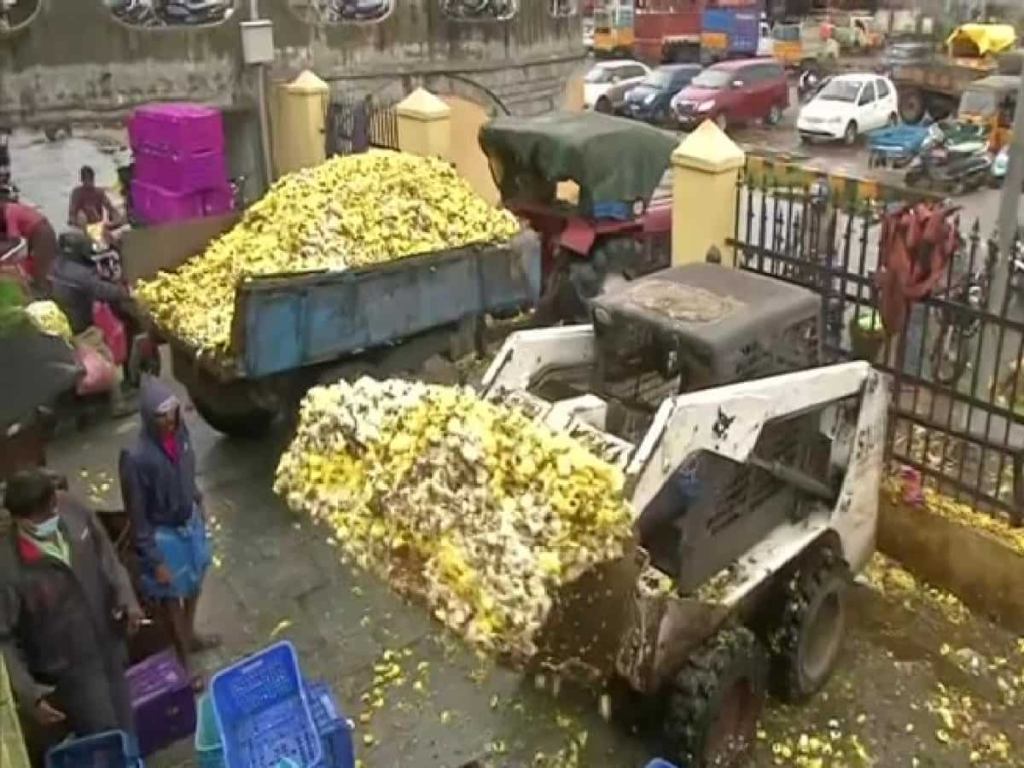India’s Floral Waste Sector Blooms: Empowering Women and Fostering Sustainability
The floral waste sector in India is witnessing a transformative phase, driven by the growing emphasis on sustainability and circular economy efforts. As temples and spiritual sites across the country generate vast quantities of floral waste, innovative solutions are emerging that convert this waste into valuable products, create employment opportunities for women, and contribute to environmental preservation.
Context and Background
India’s rich cultural and spiritual landscape is marked by numerous temples and religious sites where devotees offer flowers as a sign of devotion. However, this practice leads to a significant amount of floral waste, which often ends up in landfills or water bodies, posing environmental and health risks. Notably, the River Ganga alone absorbs over 8 million metric tons of flower waste annually, according to a UN Climate Change report. This widespread issue has prompted communities and entrepreneurs to seek sustainable solutions under initiatives like the Swachh Bharat Mission-Urban 2.0.
The Circular Economy Approach
A circular economy aims to extend the lifecycle of products through practices such as sharing, leasing, reusing, repairing, refurbishing, and recycling. In the context of floral waste, this approach is being embraced to convert discarded flowers into valuable products like organic compost, natural dyes, and eco-friendly consumer goods.
Emerging Innovations and Initiatives
- Mahalakaleshwar Temple, Ujjain: Handling 5-6 tonnes of floral waste daily, the specialized ‘Pushpanjali Econirmit’ vehicles collect and process this waste at a 3TPD plant. Women from the Shiv Arpan Self-Help Group create high-quality items from this waste, turning it into compost and biofuel, benefitting local farmers.
- Siddhivinayak Temple, Mumbai: Adiv Pure Nature, a Mumbai-based design house, collects floral waste thrice a week from the temple. They transform these blooms into natural dyes for textiles, producing garments, scarves, and other fabric products.
- Tirupati Municipal Corporation: Managing over six tons of floral waste daily, this initiative employs 150 women from self-help groups to upcycle the waste into valuable products at the Tirumala Tirupati Devasthanam Aggarbatti manufacturing plant. These products are packaged sustainably using recycled and plantable paper.
- Phool, Kanpur: Phool tackles temple waste by collecting nearly 21 MT of floral waste weekly from five prominent temple towns. This waste is upcycled into incense sticks, cones, and other products. Women employed by Phool receive a safe working environment and various benefits, promoting social entrepreneurship.
- HolyWaste, Hyderabad: With a process called ‘Florjuvination,’ HolyWaste turns floral waste collected from 40 temples into fertilizers, incense sticks, and soaps. Preventing 1,000 kg of waste from polluting water bodies and landfills weekly, HolyWaste showcases effective waste management.
- Aaruhi, Delhi-NCR: Founded by Poonam Sehrawat, Aaruhi collects floral waste from over 15 temples, recycling 1,000 kg of waste monthly and training over 3,000 women to create eco-friendly products.
Towards a Sustainable Future
The integration of initiatives like ‘Green Temples’—preventing floral waste from entering water bodies and encouraging composting within temple premises—can further enhance sustainability efforts. Education and outreach to priests and devotees about responsible waste management play a crucial role in these programs’ success. Additionally, promoting digital offerings or biodegradable materials instead of traditional flowers can significantly reduce floral waste.
As India continues its journey towards sustainability, embracing the circular economy’s principles in the floral waste sector offers a promising pathway to environmental preservation and social empowerment. These innovative initiatives not only reduce waste but also create dignified employment opportunities, especially for women, thereby contributing to a holistic and sustainable model of development.
